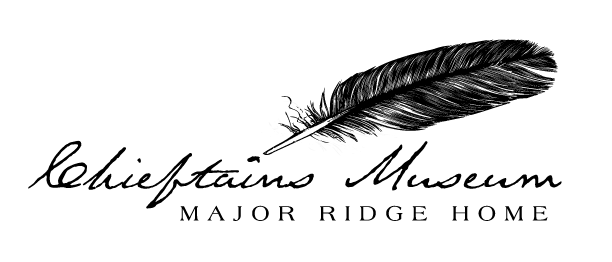Presented by Dr. Alice Taylor-Colbert, “Sehoya” tells the story of Major Ridge’s wife Susanna Wicket Ridge. At a time when Cherokee male leadership, confronted with the creation of the American nation in the late 1700s and early 1800s, attempted to adapt to that reality by establishing new political norms and governmental structures, Cherokee women, such as Susanna Wickett Ridge, led the cultural and economic adaptation necessary for their people’s survival. Unlike many of the male leaders, Cherokee women retained the essence of their traditional Cherokee heritage despite the adaptations they chose. The life of Susanna Wickett Ridge is one full of challenges, opportunities, tragedies, and victories. In studying Susanna, one discovers the persistence of the Cherokee spirit, a spirit that bears fruit, not only through offspring, but also through the products of the earth and through human action. Her strength enables her to endure adversity, to adapt, survive, and create a better future. The Cherokee people are thriving in three federally recognized tribes today because Cherokee women like Susanna made that possible.
Dr. Taylor-Colbert earned her Master’s and Ph.D. degrees in American Studies from Emory University in Atlanta, Georgia. She has served five universities as an American history and public history professor and/or an academic administrator, including Campus Dean (CEO) of USC Union, before leaving higher education in 2019. During her career, she enjoyed teaching Southern history and culture, Cherokee Studies, Museum Studies, and American history of all eras. As a public historian, Taylor-Colbert began her career at the Atlanta History Center, has led museums, archives, historic sites, and galleries owned by the universities she served, and now leads Development and Strategic Initiatives for South Carolina Humanities. Taylor-Colber is currently a board member of the Georgia Trail of Tears Association.
The lecture is sponsored by the Gladys Krieble Delmas Foundation of New York. The Foundation intends to further the humanities by supporting projects and programs that address the concerns of the historical studia humanitatis: a humanistic education rooted in the great traditions of the past; the formation of human beings according to cultural, moral, and aesthetic ideals derived from that past; and the ongoing debate over how these ideals may best be conceived and realized
The lecture is free and open to the public.
